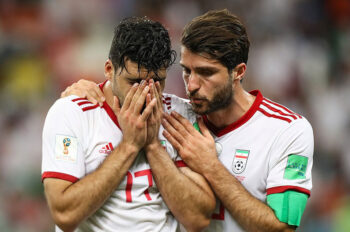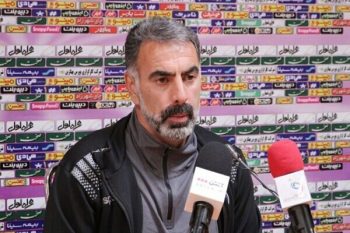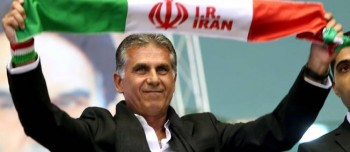Rewind to 1997: Socceroos suffer a shock
 ESPNsoccernet – When Tim Cahill scored against Japan in Australia’s first World Cup game for 32 years on a scorching Monday afternoon in Kaiserslautern over five years ago, he took out three decades worth of a nation’s frustrations on an innocent corner flag at the Fritz Walter Stadium. In the almost 12,000 days between 1974 and 2006, one stood out for all Australians. It was November 29, 1997, and rarely had a country come so close to the World Cup only to see it snatched away.
ESPNsoccernet – When Tim Cahill scored against Japan in Australia’s first World Cup game for 32 years on a scorching Monday afternoon in Kaiserslautern over five years ago, he took out three decades worth of a nation’s frustrations on an innocent corner flag at the Fritz Walter Stadium. In the almost 12,000 days between 1974 and 2006, one stood out for all Australians. It was November 29, 1997, and rarely had a country come so close to the World Cup only to see it snatched away.
Australia and Iran will always share the emotion, passion and drama that was played out during their 1998 World Cup play-off on an early summer afternoon in Melbourne 14 years ago.
Australia, no longer in Oceania, now face Asian teams in their regular AFC qualification and compete with the likes of Iran as a matter of course. On the face of it, breezing past the likes of the Solomon Islands and then just having 180 minutes of action between you and the World Cup may sound tempting but, after four years of little competitive action, to be placed into the most swirling cauldron imaginable was a big ask – especially when that cauldron is the Azadi Stadium.
The first leg in Tehran saw 128,000 fans, all male, starting to cram into one of Asia’s most iconic and intimidating arenas five hours before kick-off. Iran, nicknamed Team Melli, were looking to add to their single World Cup appearance – 1978 in Argentina.
Despite the support, it didn’t seem likely. Iran were a team short of confidence. After leading the group in the final stage of qualification, they needed just three points from the last three games against Saudi Arabia, Qatar and Kuwait to confirm a spot in France. Instead, they managed just one. That meant a play-off with Japan for Asia’s third automatic spot. Again, Iran had got themselves in a good position in the one-off match in Kuala Lumpur and were 2-1 up with 15 minutes to play before allowing Shoji Jo, the shortest man on the pitch, to head home an equaliser. In the 118th minute, Masuyuki Okana’s golden goal broke Persian hearts to take Samurai Blue to France for the first time.
The game with Australia was Iran’s third and final chance and, in contrast to the stuttering Persians, the Socceroos were in great form. They had a host of stars in Europe – not just the likes of Harry Kewell and Mark Viduka, but Craig Moore at Glasgow Rangers, Aston Villa’s Mark Bosnich and Stan Lazaridis at West Ham. Terry Venables took the job in January 1997 and the former Barcelona and England boss had led the team to 12 wins from 12.
Such confidence was apparent as they started well in Tehran, taking the game to the hosts, who looked weighed down by the occasion. A teenage Kewell showed that he had the temperament as well as the talent for the biggest of stages by opening the scoring after 19 minutes with a shot from the edge of the six-yard box. Perhaps precisely because the worst had actually happened, the hosts were then able to play. Khozadad Azizi equalised before the break but, for much of the match, Iran were frustrated by Mark Bosnich in goal, showing the form that was soon to take him to Manchester United. It ended 1-1.
The two teams then made the long journey Down Under but all knew that Australia were in the driving seat with an away goal, great form and a passionate home crowd. Melbourne Cricket Ground held 85,000 fans and, once again, Australia sprung out of the traps to put the nervous-looking opposition onto the back foot. Chances came and went in an opening period that could have virtually ended the game as a contest, but few cared about that just after the half-hour as Kewell put his team ahead. Three minutes after the break, Aurelio Vidmar, now coach of the Olympic Team, put them two up, following up to shoot into the roof of the net from close range after a looping header hit the crossbar. It was 2-0 to Australia and the stadium was rocking. “Dare we dream it, Australia is on their way to France,” the commentator said. Fans agreed and sang: “We’re going to France.” But not that much had changed with Vidmar’s goal – two would still send Iran through on away goals.
People talk of turning points such as a red card, a disallowed goal or a missed chance but, in Melbourne, most agree that it came soon after Vidmar’s strike when a fan ran onto the pitch and tore down one of the nets. Blond-haired invader Peter Hore was led off by police, ducking the odd object thrown by angry fans. If they had had any inkling of what was to come, he could have been subjected to much worse. Hore has a penchant for gate-crashing big occasions such as the Melbourne Cup, the Australian Open and the funeral of pop star Michael Hutchence; he may be regarded as a serial pest at home, but he will always find a friendly welcome in Tehran.
 It only took a few minutes for officials to repair the damage. Nobody will ever know what would have happened without the break in play. Team Melli would have had to come out all guns blazing anyway, but the incidental interval did seem to rob the hosts of the momentum that they had built and give the Iranians time to regroup, reorganise and redouble their efforts.
It only took a few minutes for officials to repair the damage. Nobody will ever know what would have happened without the break in play. Team Melli would have had to come out all guns blazing anyway, but the incidental interval did seem to rob the hosts of the momentum that they had built and give the Iranians time to regroup, reorganise and redouble their efforts.
Perhaps Venables, just 18 months after a heartbreaking semi-final loss with England at Euro ’96, should have used the time to shut up shop. As it was, Iran were soon pushing forward and for the first time were looking threatening. With 19 minutes left, Karim Bagheri, who missed the first leg, pulled a goal back. Team Melli scented blood and just four minutes later, Azizi sprinted through the offside trap to slot the ball past a helpless Bosnich. It was 2-2 on the day and 3-3 on aggregate. Iran were 15 minutes from glory, just as they had been against Japan in the previous round.
They didn’t want to take any chances and fell back to protect what they had in the face of an Aussie onslaught. The hosts couldn’t take any chances and after eight minutes of injury time, the referee blew his whistle to send Iran to the World Cup (it took 17 games in all – ‘A chaotic route,’ as Le Monde put it) and condemn Australia to at least four more years on the fringes of world football. Around 80,000 stunned supporters left the stadium in disbelief, while the 5,000 Iranian fans stayed, sang and danced.
Those scenes of jubilation were played out back in Iran where the whole country took to the streets. The government, one with close links to football then as now, had been braced for celebrations in case of an Iranian win and their fears were confirmed when people, and especially women still banned from stadiums, were soon out dancing and drinking. Members of the security forces charged with restoring order were instead invited to join in.
The team were told to take their time returning and had a three-day stopover in Dubai. When they eventually arrived in Tehran, there was no street parade as instead helicopters took the stars straight to Azadi Stadium. Still, the women were not to be stopped from seeing the heroes and thousands of them eventually forced their way into the arena to join in the rapturous welcome.
What happened next? Australia somehow picked themselves up to perform well at the Confederations Cup held in Saudi Arabia the following month. It was supposed to be the start of their World Cup preparations but they beat Mexico and drew with Brazil in the group stage and then downed Uruguay in the semi-final. A 6-0 thrashing at the hands of the Brazilians – hat-tricks from Ronaldo and Romario – was a disappointing end to a year that was so close to being great. The team missed out on the 2002 World Cup in a play-off to Uruguay but got their revenge on the South Americans in 2005 to qualify for Germany. Then came that game against Japan. Iran, meanwhile, eventually returned home and had an enjoyable time in France, famously defeating the United States 2-1. The team fell at the first hurdle but had to wait until 2006 to return to the World Cup after missing out on 2002 in traumatic circumstances after a defeat in Bahrain.




